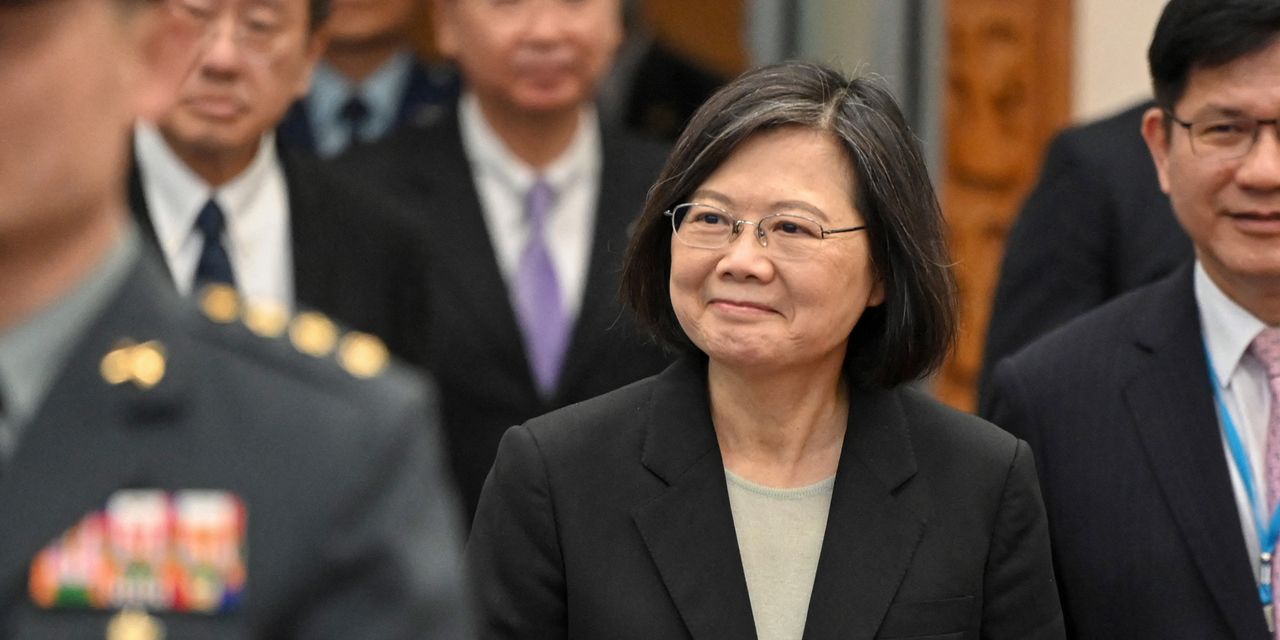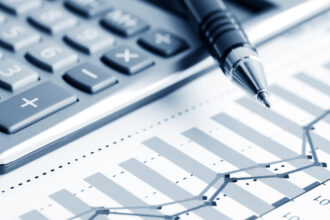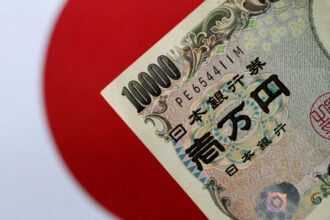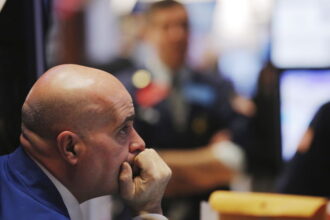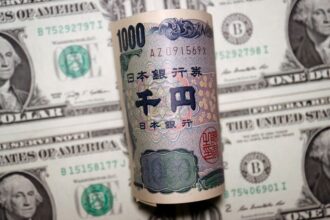Taiwan President Tsai Ing-wen is expected to meet with U.S. House Speaker Kevin McCarthy on Wednesday.
Sam Yeh/AFP/Getty Images
About the author: Thomas Shattuck is the global order program manager at the University of Pennsylvania’s Perry World House, and a member of Foreign Policy for America’s NextGen Foreign Policy Initiative and the Pacific Forum’s Young Leaders Program.
Taiwanese President Tsai Ing-wen is in the midst of her first major international trip to the U.S. and Central America since the Covid-19 pandemic emerged. Beijing has often punished Taiwan in similar circumstances, and it’s likely to do so again. But even though China could bring the hammer down, it probably won’t. The reasons why not reveal important facts about China’s ability to use its economic weight against the rest of the global economy.
Tsai is expected to meet with U.S. House Speaker Kevin McCarthy in California on Wednesday following a stop in New York last week. Every time that Taiwan works to carry out or expand its international relations, Beijing administers some form of military or economic pressure to send a message not only to Taiwan but to the rest of the world. The message is simple: Don’t engage further with Taipei. The success of Beijing’s strategy has been quite mixed, but given the high-profile nature of this trip, it will almost certainly result in additional punitive measures against Taiwan.
How will Beijing punish Taiwan for the trip? China is Taiwan’s largest trading partner, so it has the ability to do truly debilitating harm to Taiwan’s economy—if it chooses. In practice, it has only exerted limited economic pressure on specific sectors and industries in Taiwan. A look at the recent history of those measures will show why.
In March 2021, Beijing banned the import of Taiwanese pineapples, and then in September 2021, Beijing announced a ban on Taiwanese sugar apples and wax apples. The apple ban was attributed to a discussion regarding the possibility of renaming Taiwan’s representative offices in the U.S., while the pineapple ban was tied to the development of unofficial ties between Taiwan and Lithuania.
The trade imbalance between Taiwan and China made these industries vulnerable targets: 97% of Taiwanese pineapples were exported to China prior to the ban.
It’s not just Taiwan that has faced these sorts of economic recriminations.
In 2012, Beijing punished the Philippines in the aftermath of an incident involving China’s disputed claims to territory in the South China Sea known as the Scarborough Shoal. It announced that officials had found “scale insects” on Filipino pineapples, and banned their import into China—creating a new opportunity for Taiwanese pineapples in the country.
In 2020, a Chinese company suspended the sale of $23.8 million worth of Czech pianos in response to Czech politicians visiting Taiwan. In 2020, China also banned—officially and unofficially—a number of Australian products in response to Canberra’s call for an investigation into the origins of Covid-19. In 2021, China banned the import of Lithuanian beef, dairy, and lumber in response to the country’s developing relationship with Taiwan.
The switch from the Philippines to Taiwan for pineapples demonstrates the ease in which Beijing can find a new importer. It can hurt farmers and find another country seeking to send its produce to China. Beijing’s trade bans often hit specific parts of an economy that do not necessarily cause widespread damage, but do send a clear message.
Similar tactics were used in other sectors in Taiwan.
In summer 2019, Beijing announced it would stop issuing individual travel permits for Chinese citizens to visit Taiwan. In response to then-House Speaker Nancy Pelosi’s visit to Taiwan in August 2022, Beijing banned the import of 100 products from Taiwan, including grapefruit, lemons, oranges, white striped hairtail, frozen horse mackerel, and other foods, and the export of natural sands to Taiwan (used for manufacturing semiconductors).
The entire economic effect of the Pelosi import bans was negligible, with one estimate saying it would hit 0.04% of cross-Strait trade. These bans—like the pineapple and apple bans—do not damage Taiwan’s overall economy of Taiwan but diminish the well-being of the farmers producing these foods.
China’s track record of utilizing trade bans to send a message to Taiwan suggests there will be more trade bans on goods, most likely produce, in response to Tsai’s international trip. This has become China’s customary reaction.
Why hasn’t Beijing banned something more significant?
The answer is straightforward: Banning goods that are more critical to Taiwan’s economy would also do damage to China’s economy and businesses. Beijing has no market incentive to ban the import of electronic parts, Taiwan’s top export to China, or to shutter Taiwanese tech factories operating in China, such as Taiwan Semiconductor Manufacturing Corp. TSMC recently received a waiver from Washington to continue sending U.S.-made equipment to the company’s facility in Nanjing despite U.S. restrictions on Chinese semiconductor manufacturing.
Beijing would only hurt itself by enacting restrictions and bans on higher-profile sectors. It can achieve its diplomatic goals without those damaging effects. This strategy has allowed for China to send strong messages to Taiwan, hurt specific sectors in Taiwan, challenge the legitimacy of the Tsai administration, and minimize the economic damage at home.
At the same time, it has created new markets and opportunities for Taiwanese producers because they can no longer rely on having access to the Chinese market. Following the pineapple ban, Americans and Japanese began to purchase Taiwanese “freedom pineapples” as a way to show their support. The late Japanese Prime Minister Shinzo Abe even tweeted a photo of himself with a case of the pineapples.
That said, plenty of countries and industries have noticed China’s willingness to impose bans when trips like Tsai’s are underway. Over time, potential partners may become reluctant to invest and sell their goods in the Chinese economy. At any moment, depending on the state of great power politics, their entire livelihood may be threatened at the stroke of a pen.
Guest commentaries like this one are written by authors outside the Barron’s and MarketWatch newsroom. They reflect the perspective and opinions of the authors. Submit commentary proposals and other feedback to [email protected].
Read the full article here


